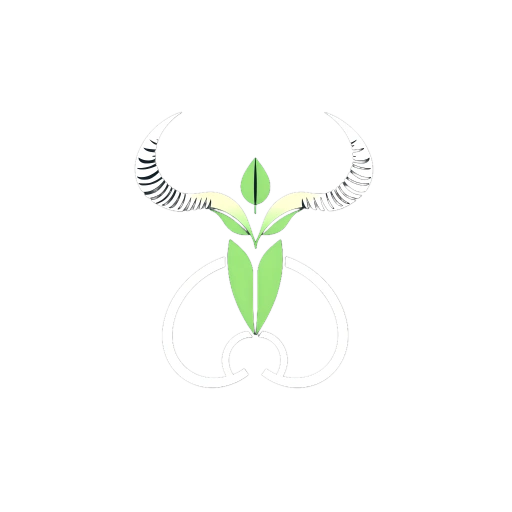If you’ve ever found yourself aroused by the idea of your wife being with another man, only to be immediately confused, conflicted, or even ashamed by that desire—you’re not alone. This fantasy, often referred to as cuckolding, exists in the emotional gray zones of modern masculinity, love, and sexuality. It challenges deeply ingrained ideas about loyalty, possession, and masculine worth. For many men, the first time this thought surfaces, it feels like a betrayal—not of their marriage, but of who they believed they were supposed to be.
So let me say this first: the presence of this fantasy doesn’t make you weak. It doesn’t make you broken. And it certainly doesn’t make you unloving.
As a therapist and researcher who specializes in cuckold dynamics, I’ve spent over a decade helping individuals and couples unpack what this fantasy really means. Beneath the surface lies a rich psychological, emotional, and even biological story—one that often has less to do with humiliation or degradation, and far more to do with intimacy, trust, transformation, and erotic power.
In this essay, I want to help you understand why this fantasy exists, what it might be trying to communicate emotionally, and how to engage with it thoughtfully—either as a private exploration or within your relationship.
Evolutionary Signals: Biology Doesn’t Judge, It Strategizes
The roots of cuckold fantasy stretch deep into our evolutionary past. From a biological standpoint, humans are wired for both pair bonding and novelty. While monogamy may be culturally reinforced, our nervous systems remain deeply responsive to sexual competition, risk, and reproductive uncertainty. These elements, far from being threats, can actually enhance desire.
Cuckolding taps into a primal psychological system known as sperm competition theory. The theory proposes that men are evolutionarily wired to respond with heightened arousal to scenarios that suggest sexual competition. The idea of another man with “your” mate may spike dopamine and testosterone not because it signals betrayal, but because—on a primitive level—it signals urgency, potency, and sexual relevance.
It’s also important to understand that watching, imagining, or even facilitating your partner’s sexual pleasure can paradoxically increase your own arousal. This reaction is part of a broader pattern observed in numerous species: arousal in response to perceived competition. While culture has taught us that sexual exclusivity is moral and desirable, biology remains more ambivalent. It simply favors what stimulates reproductive attention.
But in humans, it’s not just about genes. It’s about meaning. What makes this fantasy so uniquely powerful isn’t the act itself—but what it symbolizes.
Emotional Stimulation: The Need to Feel Alive in Love
For many husbands, especially those in long-term relationships, erotic desire begins to quiet over time—not because they love their wives less, but because routine settles in. Predictability replaces mystery. Comfort replaces intensity.
The cuckold fantasy disrupts that.
It introduces emotional risk back into a safe emotional space. It brings back a sense of vulnerability. The thought of your wife choosing someone else, even temporarily, evokes powerful emotions—jealousy, fear, longing, pride, insecurity, lust. These emotions become eroticized. They create an emotional edge that awakens the nervous system.
This process, in psychological terms, is called erotic anxiety—the ability for fear and desire to co-activate. When managed correctly, this anxiety doesn’t destroy trust. It heightens connection.
In sessions, I often ask my clients: “What do you feel when you imagine her with someone else?” Their answers vary—sometimes it’s fear, sometimes arousal, sometimes both. But almost always, it leads to a second layer: “I want her to feel free. I want her to know she’s desired. I want to witness her fully alive.” At its core, this fantasy often reflects a deep yearning for emotional intensity and erotic renewal—not humiliation.
Erotic Anxiety as Fuel: The Edge That Awakens the Mind
Erotic fantasies are often paradoxical. We may crave what scares us. We may be turned on by the very thing we fear will make us irrelevant. This contradiction is especially common in cuckolding fantasies.
Neuroscience helps us understand why. Both fear and arousal activate overlapping regions in the brain—most notably the amygdala. When erotic scenarios carry emotional intensity, they tend to imprint more deeply. Think of it like this: watching your wife flirt with another man, in a context of consent and safety, creates an emotional spark. That spark can reignite dormant parts of your own erotic identity.
But here’s the key: erotic anxiety must be held with emotional skill. If it becomes panic, it corrodes trust. If it becomes a shared, navigated experience, it can transform intimacy.
What many men describe after their first real-life cuckold experience is not shame—it’s awe. Awe at their wife’s beauty, at their own resilience, at the emotional fire they survived and even enjoyed. Erotic anxiety, when metabolized well, becomes emotional adrenaline. It sharpens love.
The Psychology of Surrender: Trust, Exposure, and Reframing Identity
To want your wife to sleep with another man is not just a fantasy about her. It is a fantasy about you—about your identity as a man, a husband, and a sexual being.
For some, the desire reflects a subconscious yearning to surrender control. In our culture, masculinity is so often defined by dominance, vigilance, and protection. But erotic surrender offers another form of power—the power to release, to trust, to let go.
This surrender is not weakness. It’s emotional submission. And emotional submission, unlike physical passivity, requires profound strength.
In therapeutic terms, cuckolding invites what we call exposure therapy to relational vulnerability. It asks: Can I trust my partner to remain emotionally bonded to me even when she is sexually engaged with another? Can I trust that love and lust can coexist with freedom? These questions can feel terrifying. But for some men, the experience of asking them—and receiving affirmative answers in real life—reshapes their entire understanding of intimacy.
Identity reframing is also part of this journey. Many men raised with rigid views of masculinity discover new self-concepts through this dynamic: “I am supportive, not possessive.” “I am secure enough to witness her pleasure.” “I am powerful in surrender.”
These are not just erotic insights. They are relational ones. And they can transform marriages from transactional to transcendent.
Partner Conversations: From Private Fantasy to Shared Dialogue
One of the hardest transitions for men with cuckold fantasies is moving from private exploration to shared conversation. Many carry this fantasy in silence for years, fearing judgment, rejection, or relational breakdown.
The first step is not asking your partner to participate. The first step is asking them to listen.
Begin with vulnerability, not performance. Frame the fantasy not as a demand, but as a curiosity. Share the emotions underneath it—the desire to feel alive, to surrender, to reconnect with her in a deeper way. If it’s framed as a request for emotional connection rather than a prescription for action, most partners will respond with curiosity, not fear.
In my practice, I help couples explore this step through fantasy discussion, storytelling, and even guided erotic conversations. You don’t need to “do” anything to begin. Just talking about the fantasy—holding it together—can itself be intensely intimate.
From there, couples can begin discussing emotional safety: What would need to be true for us to explore this? How would we navigate discomfort or jealousy? What are our emotional limits?
The goal isn’t agreement. It’s expansion. It’s inviting your partner into your inner world not to change them, but to show them who you really are.
Therapeutic Notes: When the Fantasy Reflects Love vs. Trauma
While cuckold fantasies can be deeply healing and enriching, they can also be rooted in unhealed wounds. As a therapist, I always explore both possibilities.
When this fantasy is rooted in love, it usually comes with emotional transparency, trust, and a desire for connection. The man is not trying to punish himself or his partner. He is trying to feel more deeply.
But sometimes, the fantasy is a reenactment of past emotional trauma. I’ve worked with clients who unconsciously eroticized earlier experiences of abandonment, betrayal, or humiliation. In these cases, the fantasy becomes a compulsive reenactment—not a path to healing, but a repetition of pain.
How do you know the difference?
In general, if the fantasy leads to emotional closeness, clearer communication, and increased self-acceptance, it’s likely rooted in love. If it leads to disconnection, secrecy, self-loathing, or relationship chaos, it may reflect unresolved trauma.
This doesn’t mean the fantasy is “bad.” It simply means that it’s asking for deeper therapeutic support before being explored behaviorally.
In my work, I never pathologize the fantasy itself. Instead, I help clients understand what the fantasy is trying to heal, express, or release. With the right therapeutic lens, even the most taboo desires can become bridges to wholeness.
Closing Reflections: There’s Nothing Wrong With Wanting More
If you’ve read this far, chances are the fantasy isn’t going away. And maybe that’s a good thing.
Maybe this desire is not a curse, but a call. A call to deepen your emotional honesty. A call to challenge old stories about love, masculinity, and ownership. A call to reconnect with your partner not through control, but through courageous vulnerability.
Wanting your wife to sleep with other men does not mean you’re broken. It means you’re complex. It means you’re alive. And it means that somewhere inside you, a part of your erotic identity is asking to be witnessed—not just in fantasy, but in truth.



